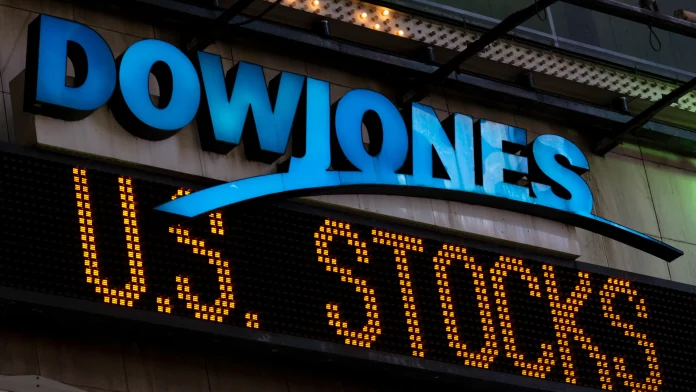The Dow Jones Industrial Average (DJIA), commonly referred to as the Dow, is a stock market index that measures the stock performance of 30 large, publicly-owned companies trading on the New York Stock Exchange (NYSE) and the NASDAQ. It is one of the most widely followed equity indices in the world and is often used as a barometer of the overall stock market.
What is the Dow Jones Index?
The Dow Jones Industrial Average was created by Charles Dow in 1896 and is named after him and his business partner, Edward Jones. The index is price-weighted, meaning that the stocks with higher prices have more influence on the index’s value. This is different from other popular indexes like the S&P 500, which are weighted based on market capitalization.
How is the Dow Jones Index Calculated?
The Dow Jones Industrial Average is calculated using a simple average of the stock prices of its 30 component companies. To calculate the index, the sum of the stock prices of all 30 companies is divided by a divisor that is adjusted for stock splits, dividends, and other corporate actions.
Features of the Dow Jones Index
The Dow Jones Industrial Average has several key features that make it unique:
1. **Price-weighted**: As mentioned earlier, the index is price-weighted, which means that stocks with higher prices have a greater impact on the index’s value.
2. **Limited to 30 companies**: Unlike broader indexes like the S&P 500, which include hundreds of companies, the Dow Jones Industrial Average consists of only 30 large-cap stocks.
3. **Blue-chip companies**: The component companies of the Dow are considered to be blue-chip stocks, which are well-established, financially sound companies with a history of stable earnings.
Disadvantages of the Dow Jones Index
While the Dow Jones Industrial Average is widely followed and has a long history, it does have some drawbacks:
1. **Limited diversification**: With only 30 component stocks, the Dow does not provide as much diversification as broader indexes like the S&P 500.
2. **Price-weighted calculation**: The price-weighted calculation method can lead to distortions in the index’s value, as it gives more influence to higher-priced stocks.
How to Invest in the Dow Jones Index
Investors can gain exposure to the Dow Jones Industrial Average through various financial products, including:
1. **Exchange-Traded Funds (ETFs)**: There are ETFs that track the performance of the Dow Jones Industrial Average, allowing investors to buy shares that represent a proportional interest in all 30 component stocks.
2. **Index Funds**: Some mutual funds and index funds are designed to replicate the performance of the Dow Jones Industrial Average.
3. **Options and Futures**: Investors can also use options and futures contracts to gain exposure to the index.
DOW 30 Companies
The 30 component companies of the Dow Jones Industrial Average represent a diverse range of industries and sectors. Some of the well-known companies included in the index are:
1. Apple Inc.
2. Microsoft Corporation
3. The Boeing Company
4. The Coca-Cola Company
5. Visa Inc.
6. Walt Disney Company
7. Goldman Sachs Group Inc.
8. Nike Inc.
9. Procter & Gamble Company
10. UnitedHealth Group Inc.
These are just a few examples of the companies that make up the Dow Jones Industrial Average.
In conclusion, the Dow Jones Industrial Average is a widely recognized benchmark for the U.S. stock market and provides investors with insights into the performance of large-cap blue-chip companies. While it has its limitations, it remains an important indicator for investors and market analysts around the world.
